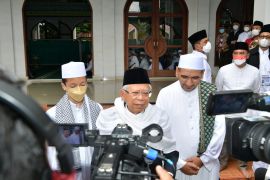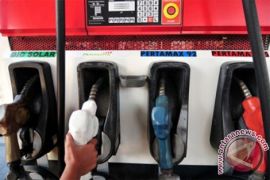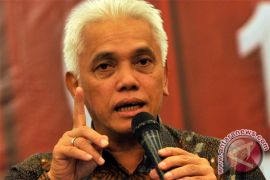If the fuel prices are not raised the budget deficit may exceed 3 percent of the gross domestic product, which is the threshold set in the law, an economist said.Jakarta (ANTARA News) - The Indonesian government should raise the prices of subsidized fuels to cut subsidy spending and curb budget deficit, Standard Chartered Bank senior economist Fauzi Ichsan said.
"If the fuel prices are not raised the budget deficit may exceed 3 percent of the gross domestic product, which is the threshold set in the law," he said here on Wednesday.
The government should raise the prices of subsidized fuels due to large disparities between the economic fuel prices and the global oil prices, he said.
"The price disparities may prompt certain quarters to hoard and smuggle fuels. However, the fuel price hike may raise the inflation rate and thus, Bank Indonesia will find it difficult to lower its key interest rate," he said.
The subsidized fuel price hike in June 2013 was far from enough to curb energy subsidy spending as subsidized gasoline and diesel oil consumption remained high, he said.
"To date, the fuel subsidy missed the target as 80 percent of the subsidy had gone to middle and upper class people. As a result, Indonesias oil and gas imports remained high," he said.
If the energy subsidy spending could be lowered, the government would have adequate funds to develop infrastructures to support economic growth, he said.
"The government may have fiscal ammunition to finance projects particularly for underprivileged people or develop rural areas that may create job opportunities," he said. (*)
Editor: Heru Purwanto
Copyright © ANTARA 2014









